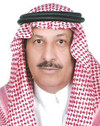Saudi Aramco’s lessons of patriotism

If a Saudi citizen can’t find a specific drug at a local pharmacy, then he or she can go to the drug store at Aramco hospital and they will dispense it. Maybe this is a small thing for a company that is considered the largest oil company in the world with an excess of $ 200 billion in revenues. But this small gesture from an oil company is the tip of the iceberg of what it did since the 1930s. Aramco didn’t only help the Saudi people, but it helped people all over the world.
The first article that I wrote in Arab News was about my experience with Aramco. It was titled, “Saudi Aramco at 77, a street with no name.” So what did Aramco do for me even when I never worked for this company? It simply taught me the beauty of patriotism and the joy of loving Saudi Arabia. I grew up seeing Aramco everywhere.
My brother-in-law, Mohammed Al-Mulhim (Abu Sameer), joined Aramco in 1959. I was only about three years old at the time, but in later years he took me to see Aramco camps and facilities. I saw my first American movie, ate my first cheese burger, watched a baseball game, enjoyed seeing a bowling alley, laughed at Americans on Halloween and finally, we were told that the Americans brought a new kind of large-sized chickens that they eat on a day they call thanksgivings. That was in the 1960s.
I still remember how upset some of my relatives get whenever we say something not good about Aramco. As kids, we weren’t allowed to criticize Aramco. They were so loyal to Aramco. I can say anything about them, but I can’t say something bad about Aramco. This company was the air they breathe. As I grew older, I thought they were exaggerating about their loyalty and love for Aramco. At the end of the day, I fell in love with this company and my education and work path crossed with Aramco.
Aramco was established in the early 1930s and it was called CASOC (California-Arabian Standard Company). The name was changed in the mid 1940s to become Aramco (Arabian American Oil Company). And finally, it was named Saudi Aramco in the late 1980s. The CEO of the company is Khalid Al-Falih and its headquarters is located in Dhahran, a city that did not exist when the American geologists arrived and later on discovered oil well number 7 in 1938.
In one of my earlier articles, I have mentioned how some historians said that this oil well was the best thing that ever happened to the Saudis in modern history and the best thing that ever happened to the American taxpayers. It is an oil well that some military strategists said helped end the World War II and thus saved hundreds of thousands of lives all over the world.
When I was a young boy, I attended schools that were built by Aramco and in these schools, I was exposed to Aramco. When I was attending these schools, I was taken to field trips to see Aramco exhibit and Ras Tanurah oil tankers loading facilities. Every morning, before the start of the school day, we would stand and salute the Saudi flag. Our schools supplied books and notebooks that were free. At the lunch break, we would stand in line and pick up our lunch snacks free of charge. In this process, I learned how to respect the others and wait for my turn. And when we visited Aramco facilities, we saw all the drivers putting on their seat belts. Wearing the seat belt in Aramco was a must and a law many years before it was enforced even in many American states.
We saw how much Aramco employees respected the time. They were the most trusted and respected in the society. It was easy for us as children to know that the man we are talking to was an Aramco employee just by the way he spoke or dressed. The society saw Aramco introduce the community health care and with it they eradicated many diseases and treated so many people even if they are not working for Aramco.
From the beginning Aramco showed all Saudis all over the Kingdom their activities through their oil industry exhibit in Dhahran and through the mobile exhibit which was shown in every city and town all over the Kingdom. Through this company, all the Saudi employees were able to own homes. Students were exposed to summer jobs, on-job training and the college student’s cooperative work. Saudi youth were taught the meaning of work ethic and loyalty to the country and the company. The employees learned the meaning of respecting the boss regardless of his/her nationality. Many Aramco employees were given scholarships to the best schools around the world. It was Aramco that introduced television to the Saudis and introduced the state-of-the-art journalism through periodical publication.
This company introduced to the Kingdom the most productive way to irrigate and cultivate the land. The Dammam to Riyadh railway system was built under the supervision of Aramco. And recently we saw Aramco building the King Abdullah University of Science and Technology, the new petrochemical plants and the solar energy research center.
I still remember the day when I was very young when I found myself standing face to face with the company’s CEO Thomas Berger. At that time, he was coming out of the Dhahran TV station after extending his twice a year Eid greetings to the Saudi audience. Saudi Aramco is not only an oil company. It is one of the happiest fairy tales that puts a smile on every face in Saudi Arabia and touches every corner of the globe. But for me personally Saudi Aramco gave me free lessons of patriotism.










































